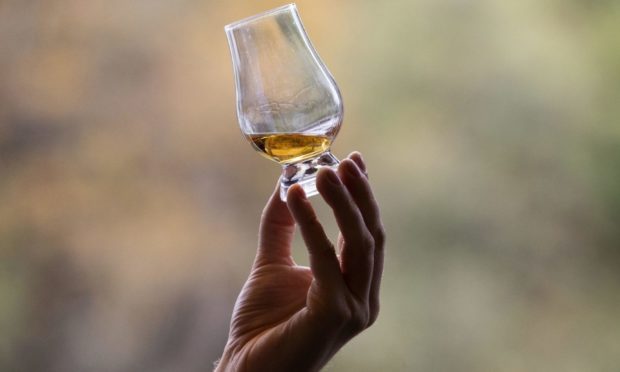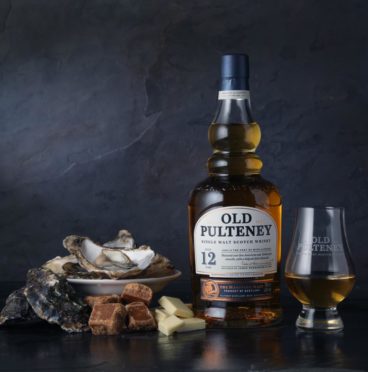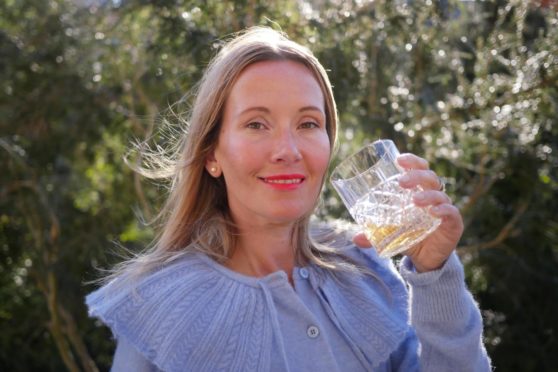On World Whisky Day, new whisky lover Brian Stormont discovered that, at the age of 48, his senses may just have hit a peak for drinking the golden spirit.
Have you tried whisky and thought it was not for you? It may be that your tastebuds were not ready.
Whisky can be, and should be, enjoyed by everyone (over the legal age of 18, of course).
So with today marking World Whisky Day, Old Pulteney commissioned food anthropologist, Caroline Hobkinson, to ask the question: Is there an optimum age for drinking whisky?
Hearing about this, my ears immediately perked up.
I am 48 years old and love whisky – but I have only been loving it for about the last four months.
I had always hated the smell and the taste. I couldn’t even bring whisky to my lips. However, I gave it another try in February and loved it!
So it seems that, for me, my tastebuds have now matured enough for me to enjoy the golden stuff.”
Brian Stormont.
As a food anthropologist investigating sensory modalities (aka taste), Caroline has researched and thought a lot on this subject. Like many things, whisky can be an acquired taste that develops as our tastebuds “mature”.
So it seems that, for me, my tastebuds have now matured enough for me to enjoy the golden stuff.
Senses at their peak
To uncover the perfect drinking age for whisky, Caroline says it’s about finding the time when our senses are at their peak, plus time and experience to develop and train the palate.
She says the sweet spot to start drinking whisky is at 35 years old. Here’s why…
We are born with 9,000 taste buds that work in tandem with our sense of smell. From an evolutionary point of view our sense of smell is there to protect us from food that could be poisonous to ourselves.
Eventually, our sense of smell and taste is at its peak when we are the most fertile, just before we hit 30 years old.”
Food anthropologist, Caroline Hobkinson
Smell is an important sense. Certain smells can evoke memories that bring your back to a certain moment in time. Other smells like fire can alert you to danger.
As we grow up and learn new smells and tastes, we overcome these instincts in order to appreciate smoky, peaty flavours and eating bitter food. Eventually, our sense of smell and taste is at its peak when we are the most fertile, just before we hit 30 years old.
This is when our taste buds are on overdrive. We discover new flavours, really get into food, coffee, wine, whisky and even start cooking to explore our newly discovered food and drink appreciation and connoisseurship.
Peaty or citrus notes
With continued time, experience and training, we come to appreciate less obvious flavours with age, whether that’s peaty or citrus notes in whisky.
Caroline said: “The perfect drinking age for whisky is about finding the perfect axis of peak sensory ability to develop and train your palate.
“Although people can be trained to appreciate the subtle aromas and flavours in whisky, perception of them is also linked to memories and experience.
“If 30 is the start of our peak sensory appreciation we should allow time to mature and train our palate. So while, of course, some palates will develop earlier, let’s give it five years of experience. That would place the sweet spot at 35.”
Malcolm Waring, distillery manager at Old Pulteney’s Wick base, has spent a lifetime producing exceptional single malts.
His tips for tasting whisky are:
- Don’t underestimate the importance of glassware. The best option to nose and taste whisky is a glass that will concentrate aromas at the rim. To fully appreciate your malt, a tulip-shaped snifter or a Glencairn nosing glass would be recommended.
- Adding water tends to “open up” a dram and brings out some of the sweeter, fruity and citrusy aromas. Others opt to add an ice cube or two. The cooling effect of the ice can act as a counterbalance to the sometimes-fiery spirit, and as it melts, the dram can be diluted and the flavours soothed.
- To those who feel intimidated by whisky, my advice would be to take your time. There is a whisky out there for everyone, waiting to be discovered! Make sure you sample malts from distilleries across the country and explore the variety on offer.


